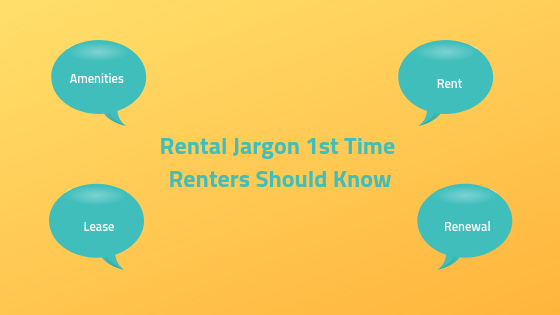Congratulations! You have made the decision to lease (rent) your next home. It is important to know what you, and your landlord’s, individual responsibilities are. The first step is understanding your lease agreement or as some might refer to it as rental jargon.
The Primary Terms of a Residential Lease Agreement spell out in great detail all the information regarding what is provided by the landlord; what is expected from you and what you have legally agreed to once you sign the lease. It is in your best interest to read and understand what that agreement says. Do not sign any agreement until you fully understand your obligations and what your landlord supplies.
Lease Start/End Date: Of course, there is a start and end date. Most landlords do not allow early move-in. There is also a Holding Over Rate: that is the amount required that you pay per day by not vacating the premises upon termination of the lease agreement.
Rent: This is the amount of money you will pay to occupy the premises. An agreement as how rent is to be paid and when rent it is due is outlined here. Late fees apply if the rent payment is not received by certain dates.
Security Deposit: This is the amount that is collected up front as a deposit against potential damage. In the event you, or your guests, damage the premises, (beyond normal wear), you WILL be held responsible for the damages. Please be aware that “I didn’t do that, my guest did” is not going to get you out of paying for damages.
If your landlord allows pets, expect to pay a separate “Pet Deposit” for each animal. Those deposits may not be refundable upon move out.
A pre-move-in walk-through will be necessary so that both tenant and landlord recognize, in writing, any defects or damage that was done prior to the tenant taking possession of the home. This will ensure you are not held responsible for damages that occurred prior to your start date.
The lease will clearly state who is responsible for all utilities. Make sure you know what you can and cannot attach to the building or place on the grounds such as antennas and satellite dishes.
Amenities: Some complexes provide amenities such as a pool, tennis courts, gym, or conference room for the use by the tenants. Make sure you know the rules of each as to hours, availability, and who can use those amenities. Guest may or may not be allowed to use those assets.
Renewal: Renewing your lease at the end of term is a good way to continue to plant your roots in your community. Your landlord will be happy to discuss this with you at or near the end of your leasing term.
Eviction: Failure to meet the terms and conditions of your lease agreement could result in you being evicted from the property.
Lease agreements are made to protect both parties. There is absolutely nothing in the lease agreement that can harm you as long as you abide by the agreement; there is also nothing in that agreement that will help you if you fail to do so.
Enjoy your new home knowing that you have made the best decision. Armed with a complete understanding of the lease agreement will help you enjoy your new surroundings during the term of the lease and through renewal!
